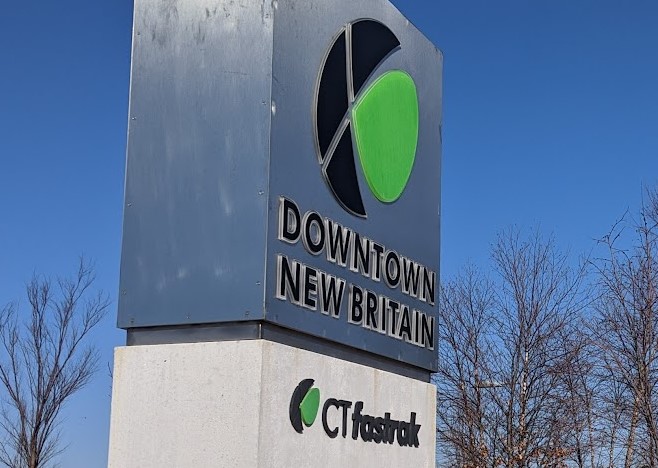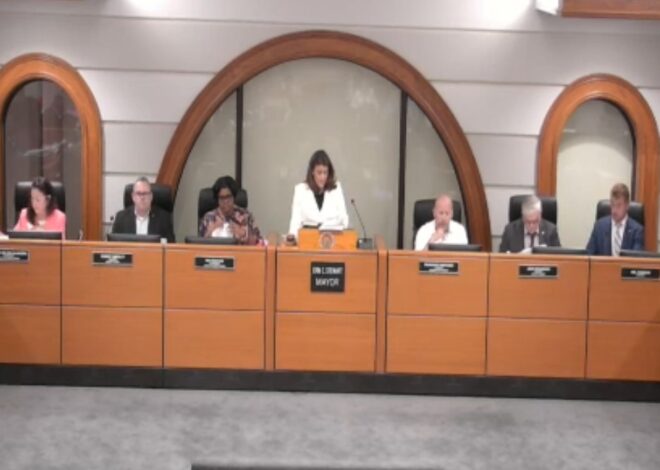Republican Mayor Erin Stewart’s proposal to allow the strip mining of New Britain’s protecting drinking watershed land was broadly slammed by two key state commissions, the Water Planning Council (WPC) and the Council on Environmental Quality (CEQ).
The two commissions were responding to a state law that required that they provide their recommendations on Stewart’s proposal that would involve removing a large section of a hill at an upstream part of the watershed of New Britain’s primary drinking water reservoir, the Shuttle Meadow Reservoir, in a strip mining operation that would remove massive qualities of rock that is a part of land owned by the city.

The Water Planning Council and the Council on Environmental Quality concluded that, “that the need for the proposed new reservoir has not been substantiated and based upon their separate reviews both the WPC and the CEQ find that the proposal’s risks to the current public water system and the environment are significant. Thus, both the WPC and CEQ are opposed to the City of New Britain’s proposal for the proposed quarry expansion and future water storage reservoir.”
Stewart had withdrawn her proposal as the Water Planning Council was set to meet on August 24, 2018 to approve its recommendations. The August 24th date was the same as the date that Stewart had pointedly stated that the two commissions were required to submit their recommendations to the state legislature, in a letter she sent to the WPC on July 10th.
However, the Water Planning Council proceeded with their meeting, anyway, approving their recommendation to the legislature that the mining plan not be approved.
At the public hearing held on the proposal on June 26th, public reaction to the watershed mining plan was nearly all in opposition.
“I would like to thank the public for speaking out against this proposal,” said the Council President, Ald. Eva Magnuszewski (D-AL). “Protecting our natural resources, especially water is of utmost importance.”
During the course of backing plan, Stewart committed over $350,000 of taxpayer funds to Lenard Engineering, leading to the study that presented underpinning of a case for mining of drinking watershed land as a way to create a new “storage reservoir” for the city.
In its analysis of that report prior to the June 26th hearing, the Water Planning Council (WPC) said “the WPC finds that the city’s report does not substantiate the need for the proposed new reservoir or, in fact, that the proposed reservoir would even be a viable public water storage facility. Based on this review, the WPC finds that the proposal’s risks to the current public water system and the environment are significant and the city’s report does not make a plausible case for undertaking such an activity and, therefore, does not justify the loss of forest and the ecological, recreational and environmental impacts.”
In that same analysis, the Water Planning Council also said that, “the WPC finds that preparation for quarrying, including clearcutting the forest and removing the stumps, soil and other natural material, followed by quarry operations, would eliminate much of the wild habitat of the site while creating the potential for decades of increased risk to the city’s nearby Shuttle Meadow Reservoir.”
Bottom line,” said Magnuszewski. “There are alternatives to gas and oil but there is no alternative to water.”
“I hope the City is refunded the $354,000.00 that was spent on this study!,” added Magnuszewski, noting that the money could have been used for public services in New Britain. “Tilcon should have paid for the study not the city!”
The Water Planning Council, in consultation with the Council on Environmental Quality, has been charged with preparing advice to be submitted to the state legislature. Since the proposed mining on protected watershed land would require a special exception or change in state law, only the state legislature can decide to authorize it.
While Stewart’s letter withdrawing her immediate proposal would appear to keep it from going any further in the upcoming legislative session, she vaguely left the door open for continued consideration of, “what measures may be required to ensure that we are responsibly addressing ongoing concerns regarding the adequate supply of clean public water.”
But, in comments on August 2nd, the Council on Environmental Quality said that, “There is no proven need for a 2.3 billion gallon drinking water reserve in New Britain.” The CEQ also pointed out that, “New Britain’s loss of potable water during transmission is about 25% higher than the norm and the rate of loss has been increasing.” The CEQ has also pointed out the large loss of water from apparent leaky pipes in the city in a report it released on May 25th.
The immediate withdrawal by Stewart of her watershed mining plan is the second time she has backed down from a proposal on a major watershed plan in the wake of strong public opposition.
At a similar time, in 2016, to when Stewart started to publicly push for allowing strip mining of the city’s drinking watershed land, she also sought to sell the one million-plus gallon per day Patton Brook Well to the Town of Southington. Southington’s support was important for winning approval of the watershed mining plan. But Stewart’s plans to sell the Patton Brook Well began to unwind in October of 2016 when the New Britain Progressive (which was called the New Britain Independent at the time) exposed that New Britain was in a drought-condition water supply alert (“New Britain in a ‘water supply alert’“).
Public opposition to the plan to sell the Patton Brook Well gained even more momentum in 2017 as severe drought conditions and the need to purchase water from the regional Metropolitan District Commission contradicted Stewart’s statements that the well was not needed by New Britain. By April, 2017, in the face of increasing pressure, Stewart gave up on the Patton Brook Well sale plans (“Amid Growing Questions and a Democratic Resolution, Stewart and Council Republicans Abandon Patton Brook Sale“).
By the end of 2017, water was flowing from the Patton Brook Well into New Britain’s primary drinking water reservoir, contradicting Stewart’s previous claim that bringing Patton Brook Well water to New Britain would be impractical and would take $1 million to do (“City Taps Patton Brook Well For Water After Calling Off Bargain Basement Sale, Hiking Rates To Pay For MDC Water“).




